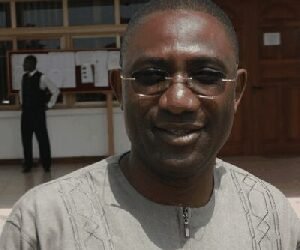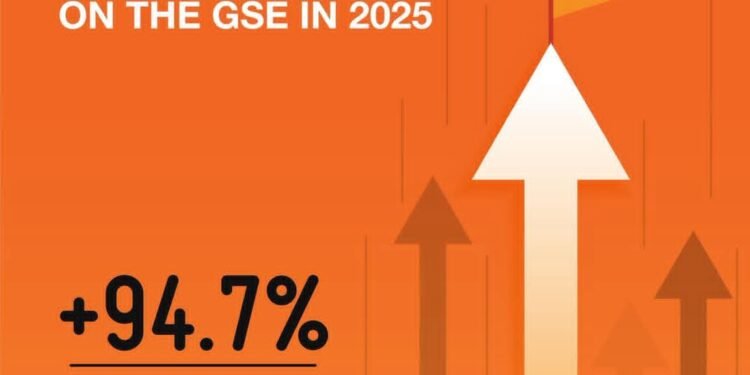In recent times, there has been significant public concern over the Attorney-General’s decision to appeal the acquittal and discharge of the Minority Leader, Dr Cassiel Ato Forson, and Businessman, Richard Jakpa in the infamous ambulance trial.
This decision has sparked widespread debate among legal experts, political commentators, and the general public, who fear that it may set a dangerous precedent for the future of Ghana’s criminal justice system.
Professor Stephen Kweku Asare, a Democracy and Development Fellow in Public Law and Justice at the Ghana Centre for Democratic Development (CDD-Ghana), weighing into the conversation, offered a thought-provoking analysis of the implications of allowing prosecutorial appeals against acquittals.
Professor Asare began his argument by drawing an analogy between a convicted individual and an acquitted one.
“Daniel Darko Dodoo (DDD) is convicted of a crime. Can he appeal the verdict? Very few will say no and their answer will be justified on grounds of fairness, justice, liberty etc. But suppose DDD is acquitted. Can the Republic appeal the verdict? Now the answer is less obvious”
Professor Stephen Kweku Asare, a D&D Fellow in Public Law and Justice at CDD-Ghana
Professor Asare pointed out that according to Articles 137(2) and 131(1)(a) of the Ghanaian Constitution, a right to appeal exists from a High Court judgment to the Court of Appeal and subsequently to the Supreme Court in criminal cases.
On the surface, Professor Asare opined that these provisions seem to grant the Republic, just like the accused, the right to appeal an acquittal at both levels of the judiciary.
However, Professor Asare urged caution in interpreting these articles, arguing that they must be understood within the broader context of the values underpinning a fair and just criminal justice system.
He argued that in many jurisdictions, prosecutorial appeals of acquittal judgments are explicitly prohibited under the principle of double jeopardy.
This principle, which protects individuals from being tried multiple times for the same offense, according to the renowned legal scholar and activist is fundamental to ensuring fairness and preventing governmental overreach.
The Ghana Centre for Democratic Development Fellow in Public Law and Justice, Professor Asare further asserted that the protection against double jeopardy is essential for maintaining public confidence in the justice system, as it prevents the state from continuously prosecuting an individual until it achieves a desired outcome.

He stated that one of the primary reasons for prohibiting appeals against acquittals is the imbalance of power between the prosecution and the defendant.
“The prosecution typically has more resources than an individual defendant, including access to law enforcement, investigative agencies, and legal counsel. By limiting the ability to appeal an acquittal, the law seeks to balance the scales of justice, preventing the state from overwhelming an individual with repeated legal actions”.
Professor Stephen Kweku Asare, a D&D Fellow in Public Law and Justice at CDD-Ghana
Protection of Individuals’ Liberties
Moreover, Professor Stephen Kweku Asare pointed out that the prohibition against appealing acquittals serves as a crucial safeguard of individual liberties.
According to him, it is in the public interest to protect citizens from potential governmental abuse of power and to ensure that the prosecutorial authority is not used as a tool for harassment.
He stressed that by limiting the ability of the state to challenge an acquittal, the law seeks to strike a balance between the rights of the individual and the powers of the government.
Professor Asare’s analysis concluded by highlighting the inherent contradiction in allowing the state to appeal an acquittal while upholding the right of an individual to appeal a conviction.
Both stances, he argued, should be rooted in the same principles of fairness, justice, and liberty, adding that just as very few reasonable people would argue against an individual’s right to appeal a conviction, very few would support the notion of granting the state the right to appeal an acquittal.
In his view, to do so would be to undermine the core values that form the bedrock of a just and equitable legal system.
As the debate over the Attorney-General’s decision to appeal Dr Ato Forson’s acquittal continues, it is crucial for the judiciary to carefully consider the broader implications of such a precedent.
The protection of individual liberties and the prevention of governmental overreach must remain paramount in any democratic society.
Professor Asare’s concluding statement, “Where do you stand?” is not just a rhetorical question but a call to all stakeholders in Ghana’s justice system to reflect on the principles that should guide their actions in the pursuit of justice.
READ ALSO: Geneva Peace Talks Struggle Amid Sudan’s Escalating Crisis























